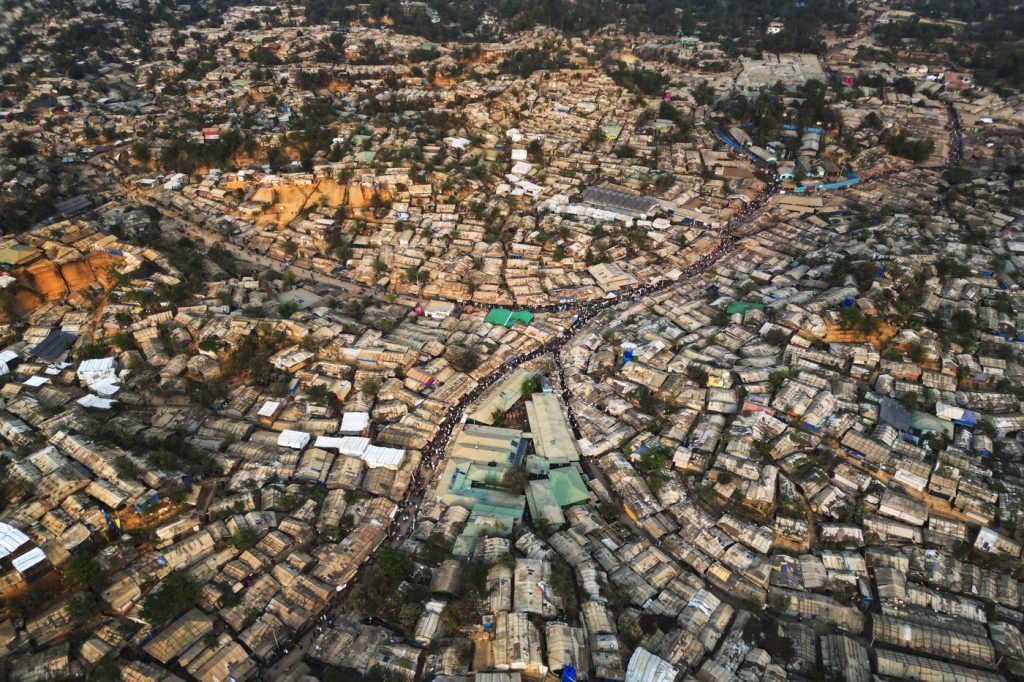COX'S BAZAR, Bangladesh (AP) — The Rohingya people, who originally faced persecution in Myanmar, have experienced a humanitarian crisis since a violent crackdown by the Myanmar army forced hundreds of thousands to flee to Bangladesh. Currently, many of the Rohingya reside in refugee camps in Cox's Bazar and are entirely reliant on humanitarian aid. This assistance is primarily provided by international organizations, with significant contribution from the United States.
However, that support is now at risk of being reduced due to U.S. President Donald Trump's decree to freeze most foreign aid. For the more than 1 million Rohingya refugees in Bangladesh, this could lead to severe shortages of food and funds necessary for survival. Although no cuts have yet been implemented, the U.N. World Food Program (WFP) has warned that it may be compelled to halve food rations if adequate funding cannot be secured. The proposed reduction would cut monthly food allotments from $12.50 to merely $6, a dire situation in the already strained conditions of Cox's Bazar's sprawling camps.
During a recent visit to the refugee settlements, U.N. Secretary-General António Guterres called attention to the implications of these potential cuts, criticizing both the U.S. and European countries for their decreased aid budgets. The WFP has indicated that if funding does not improve by April, it would have no choice but to start reducing rations, which could devastate the lives of refugee families, particularly vulnerable women and children.
The potential cuts have left many, like Mahabub Alam, a 56-year-old former farmer who now lives in the camp with his nine-member family, deeply concerned. Alam, who served as a local government chairman before fleeing Myanmar in 2017, expressed that living on just $6 a month would be impossible, stating, “We will not be able to live on that, and we will die here.” He emphasized that the allocated funds already barely cover basic needs, noting that over 15% of children in the camps suffer from acute malnutrition according to UNICEF.
Alam's concerns extend beyond just food insecurity; he fears that aid cuts will escalate unrest within the camps. He predicted an increase in crime, such as theft and violence, as refugees compete for dwindling resources. Alam mentioned that he would prefer to return to Myanmar if there were guarantees of safety, but acknowledged the current political climate in Myanmar, which remains embroiled in civil war, makes that option impossible.
The impending aid cuts also pose serious risks for the health and well-being of camp residents in need of medical care. Tomida Khatun, a 46-year-old refugee who arrived in Cox's Bazar in 2017, expressed her grave concern over the future of her family’s health. She highlighted the challenges of affording necessary medical treatments for conditions such as high blood pressure and diabetes without adequate financial support. Khatun described the current monthly food ration of $12.50 per person as already stretched to its limits, fearing a funding shortfall would only exacerbate their difficulties in accessing food and education for their children.
As the world observes the worsening conditions in Cox's Bazar, aid workers have reaffirmed that substantial cuts to humanitarian assistance will have catastrophic consequences for refugees. The international community's response in the coming months will be critical in determining the future of the Rohingya people living in precarious circumstances.










